Greek Sculpture Midterm Statues
1/18
There's no tags or description
Looks like no tags are added yet.
Name | Mastery | Learn | Test | Matching | Spaced |
|---|
No study sessions yet.
19 Terms
Orientalizing art (Daedalic sculpture)
c. 700-600 BC
Warrior type is still popular; Bronze males and terracotta femalels; Panhellenic Games: rise of the athletic youth figure; Marble
Archaic Era
c. 600-480 BC
Marble and the monumental scale in archaic sculpture. Two types/two words: kouros and kore. Also: the relief sculpture in stone. Contexts: the divine, the votive, the funerary
Early Classical art (Severe style)
c. 480-450 BC
-contrapposto stance begins to be common; realistic drapery; beginning to do better with proportions; a lot of sculptures were added into architectural elements.
High classical art
450-400 BC
-idealized forms, idealism for themes, detailed drapery, enhanced naturalism, contrapposto, etc.
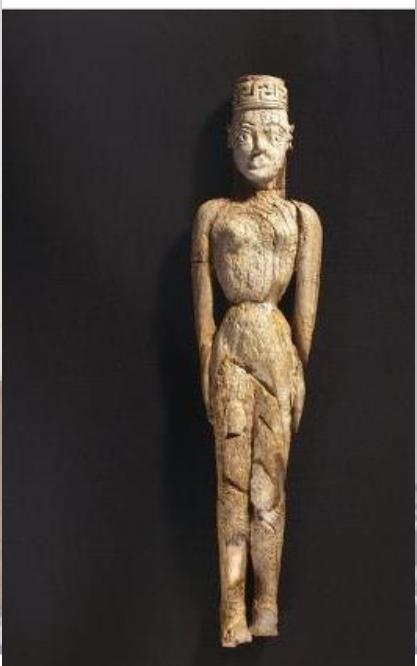
-Ivory female figure
-from Athens
-NAM
-c. 730 (Daedalic sculpture)
-source of ivory
-nudity as a signifier of oriental influences
-POLOS hat
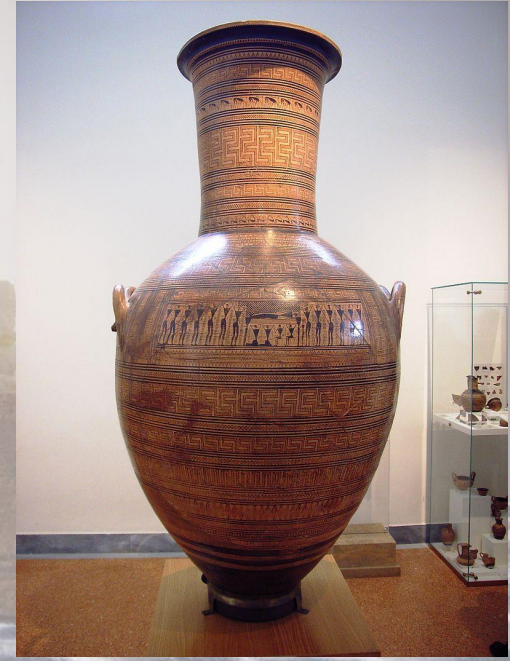
-Diplon amphora
-NAM
-Unknown artist
-c. 750 BC (geometric art/daedalic)
-monumental size; tells a story
-context:grave marker/funerary
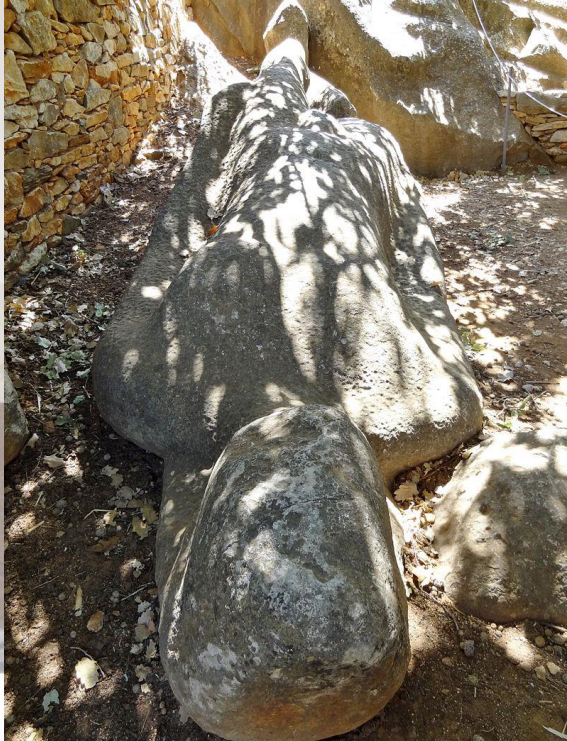
-Melanes Kouros
-found in Naxos
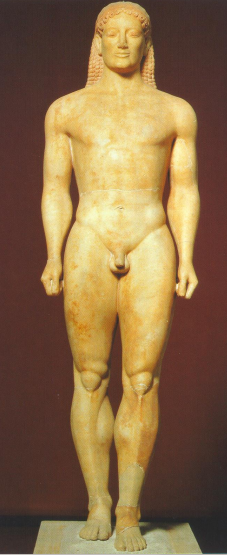
-Kroisos Kouros
-from Anavyssos
-530 BC (archaic style)
-in the NAM
-Contour; proportions; three dimensionality vs. frontality; Archaic smile; Stylized hair
-inscription: Stay and mourn at the monument for dead Kroisos whom violent Ares destroyed, fighting in the front rank
-sculptor is unknown
-no secure record of the time and location of its discovery; although a theory is that is was saw in various parts and sent to Paris for sale before it was returned to the NAM
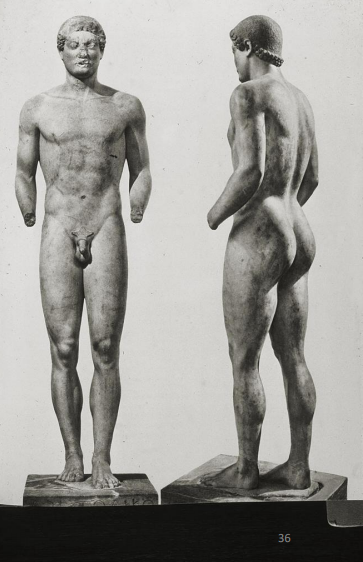
-Aristodikos Kouros
-c. 500 BC
-From Attica
-Gravemarker of Aristodikos
-Naturalistic; arms in motion; closer to reality
-still stiff, frontal pose
-In NAM
-Sculptor: unknown
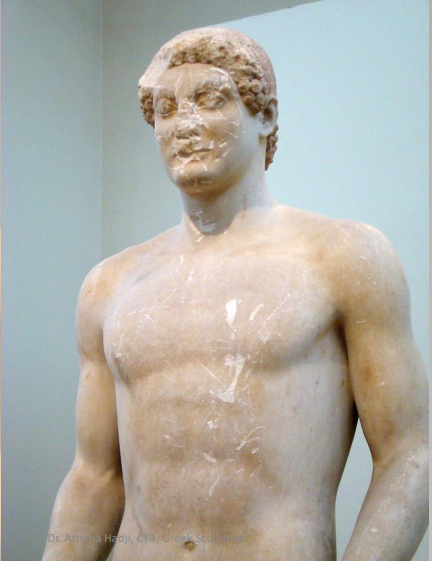
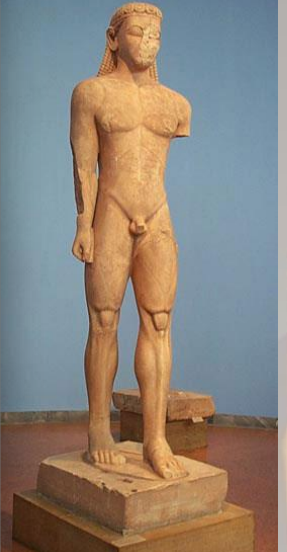
-Sounion Kouros
-in NAM
-580 BC
-Naxian marble
-buried in a pit at the sanctuary of Posiedon at Sounion
-Massive disproportionate head
-Disproportionally large eyes
-Archaic style/ stylized features and frontal pose and very intricate hairstyle
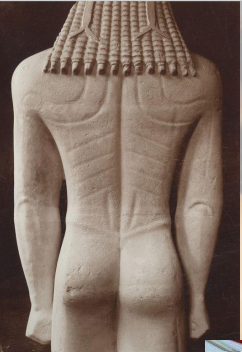
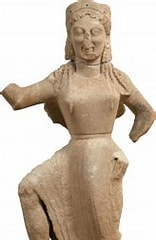
-Archermos Nike
-in the NAM
-One of the earliest representations of nike (she has wings)
-drilled holes in crown are for gems
-6th century
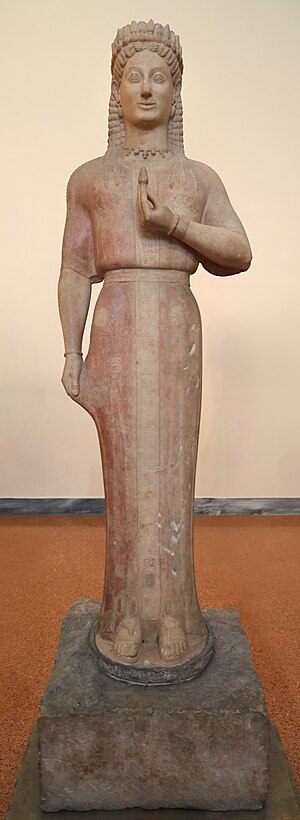
-Phrasikleia Kore
-c 550 BC
-in the NAM
-archaic art
-found in Attica
-sculptor was Aristion of Paros
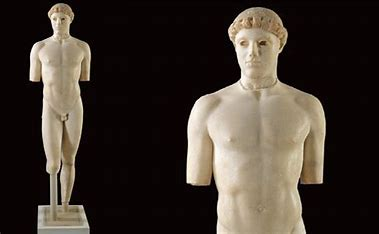
-Kritios boy
-Acropolis Museum; found at the acropolis (it was a votive)
-sculpted by Kritios
-between archaic and classical art (Severe style)
-480 BC
-one of the earliest examples of contrapposto
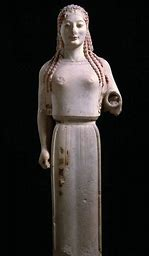
-Peplos Kore
-Acropolis Museum
-unknown sculptor but it might be the “Rampin Master”
-Archaic period c. 530 BC
-votive
-red hair color is still seen
-believed to be portraying Artemis or Athena
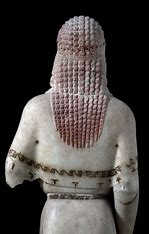
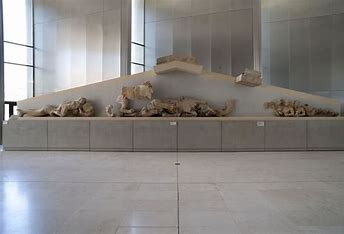
-Hekatompedon pediment
-Acropolis Museum
-on the Hekatompedon (which was an early temple that was replaced by the Parthenon)
-c. 570 BC
-Archaic Period
-a lot of color; archaic style; smile, eyes, eyebrows; beards show maturity
-sculptor: Attic
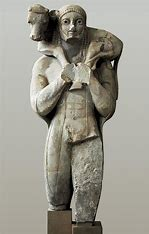
-Moschophoros (calf bearer)
-Acropolis Museum
-560 BC
-Archaic period; archaic style
-although the calf has movement, this kouros is still very stiff
-likely was a votive offering
-attributed to the sculptor Rhonbos
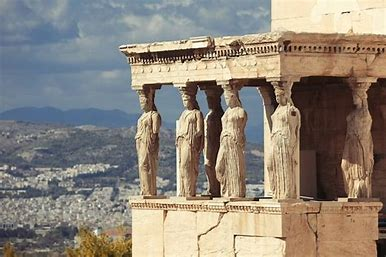
-Caryatids
-Acropolis Museum
-Used to be on the Erechtheion until they were moved in 1978
-different sculptors (Pheidias and his pupils Agorakritos, Alkamenes, Kolotes, Kresilas)
-420 to 415 BC
-Classical Period
-plaited hair; unique; similar doric and peplos; contrapposto stance
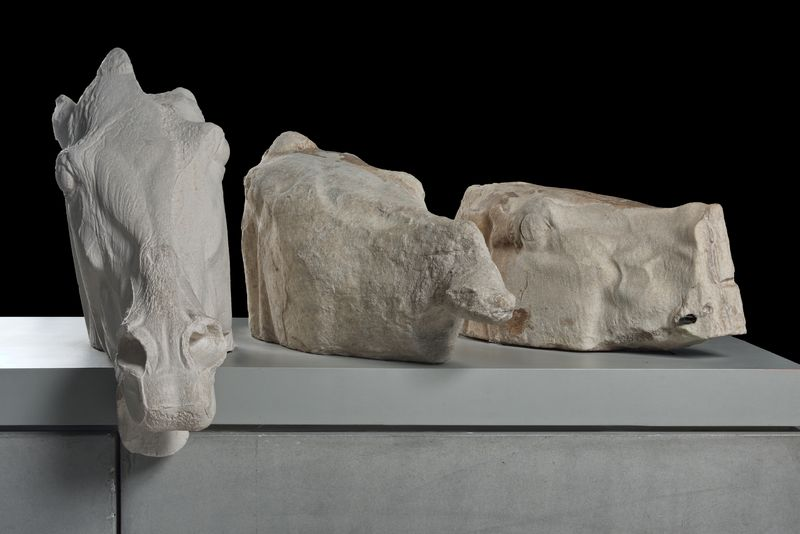
-East Pediment
-Acropolis Museum
-426-423 BC
-sculptor: Agorakritos
-Classical Period
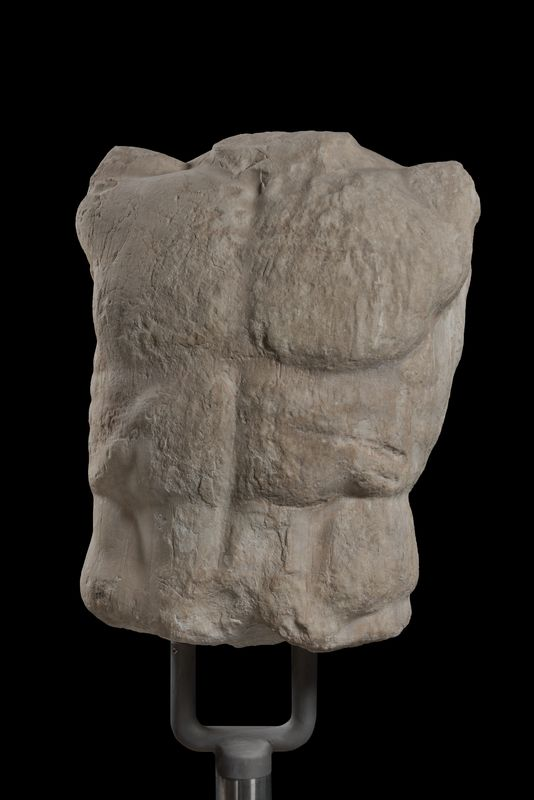
-West Pediment
-437-432 BC
-Classical Period
-Pheidias’ workshop
-Part of the Parthenon
-more natural stances